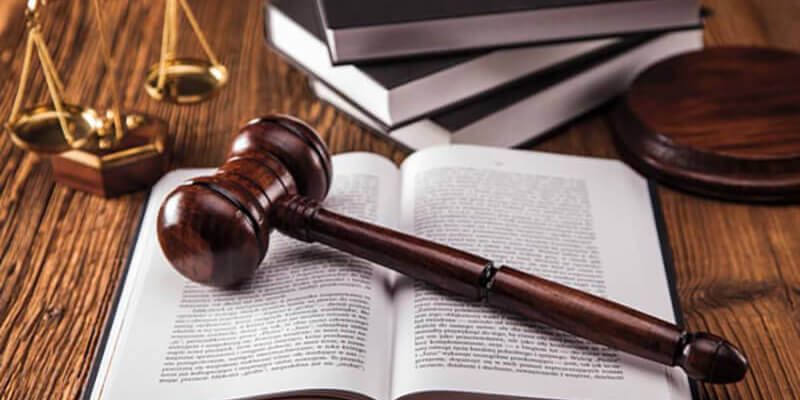
The function of an arbitration lawyer is to prepare arbitration clauses, represent clients at hearings, and enforce the awards if needed through UAE courts.
- Book My Author
- Business
- 2025-09-18 17:42:23
- 740K
Dubai has established itself as a global center of commerce and investment with lightning quick pace. With diverse commercial enterprises and international parties, conflict is inevitable. From contract breaches to shareholder contention, companies need to resolve disputes swiftly to safeguard their interests. In the UAE, the legal system provides a combination of federal courts, Dubai courts, and specialized arbitration bodies such as the DIFC LCIA and DIAC. Under these circumstances, a dispute resolution lawyer is needed to safeguard rights, reduce risks, and maintain compliance with UAE law.
Dispute resolution in the UAE is multi faceted. Legal practitioners have to contend with federal laws, civil codes, commercial regulations, and free zone laws. Their job goes beyond court representation, including mediation, arbitration, and strategic negotiation. This article discusses how dispute resolution lawyers assist companies in Dubai, the UAE laws involved, and why effective representation is crucial in a competitive global economy. For companies with cross border activities, legal consultants often work alongside dispute resolution lawyers to ensure compliance with commercial regulations while preparing effective strategies to avoid future conflicts.
UAE Legal Framework for Conflict Resolution
The foundation of conflict resolution in the UAE is the UAE Civil Code (Federal Law No. 5 of 1985) and the Commercial Transactions Law (Federal Law No. 18 of 1993). The legislation regulates contractual agreements, commercial transactions, and default liability. In addition, the Federal Law No. 6 of 2018 on Arbitration brought the system of arbitration into line with international best practices and improved the reputation of the UAE as a neutral forum for cross border disputes.
For companies doing business in free zones like the DIFC or ADGM, resolution of disputes can be subject to specialized laws like the DIFC Arbitration Law (Law No. 1 of 2008). These are in addition to the UAE's adherence to global conventions like the New York Convention of 1958, securing arbitral awards being enforceable across the globe.
Court Litigation in the UAE
Litigation continues to be the main recourse of dispute resolution in the UAE. Cases can be brought before local courts or, as a function of jurisdictional arrangements, before DIFC Courts. The UAE judiciary employs a civil law system, with proceedings being document intensive and in the Arabic language. For businesses, this implies that legal representation must not only be competent in federal law but capable of handling translation, expert evidence, and procedural matters efficiently.
Legal counselors with litigation manage to ensure that claims are made within statutory limitation periods, evidence is submitted according to court procedures, and appeals are managed appropriately. Their work is important in steering the procedural intricacies of the UAE court system while protecting client interests.
Arbitration as a Preferred Option
Arbitration is a popular mode of settling commercial disputes in Dubai, especially for international agreements. The Dubai International Arbitration Centre (DIAC) and the DIFC LCIA Arbitration Centre are premier organizations, providing specialized platforms for deciding complicated cases. Arbitration provisions are frequently included in commercial contracts to guarantee impartiality, secrecy, and enforceability.
The function of an arbitration lawyer is to prepare arbitration clauses, represent clients at hearings, and enforce the awards if needed through UAE courts. As the UAE has made the New York Convention a part of domestic law, the awards given in arbitration are enforceable throughout the world, and this makes the position of Dubai even stronger as a secure seat for arbitration.
Mediation and Alternative Dispute Resolution
Apart from arbitration and litigation, mediation and conciliation are becoming increasingly popular in Dubai as time and cost effective resolutions. Dubai Mediation Centre and DIFC promote amicably resolving disputes prior to going to arbitration or litigation. Legal advisers are key in enforcing settlements, reconciling client interests with legal enforceability. This preventative mechanism generally enables businesses to preserve commercial relationships without incurring unnecessary costs.
Sector Specific Disputes in Dubai
The UAE's mixed economy brings about sector specific disputes that need specialized knowledge. In real estate, the disputes can stem from off-plan projects, service charges, or tenancy agreements, which come under the control of Dubai Real Estate Regulatory Agency (RERA). In banks, the disputes could include compliance with UAE Central Bank regulations or financial wrongdoing under Federal Decree Law No. 14 of 2018 on the Central Bank and Banking Sector. Shipping and maritime disputes are common due to Dubai’s strategic port activities, often governed by Federal Maritime Law No. 26 of 1981.
A dispute resolution lawyer must therefore adapt their strategy depending on the sector, ensuring that both federal and emirate level regulations are properly applied. In maritime disputes, a shipping lawyer may be required to provide specialist representation, particularly where charter party agreements, bills of lading, or cargo liability issues are involved.
Enforcement of Judgments and Awards
Securing a win is merely the beginning. Enforcement of court orders and arbitral awards in the UAE involves following protocols under the UAE Civil Procedure Law (Federal Law No. 11 of 1992, as amended). Enforcement might entail freezing assets, registration of awards with local courts, or coordination with international jurisdictions for enforcement across borders. Legal experts see to it that enforcement measures are pursued promptly, safeguarding the commercial and financial interests of the client.
Why Companies Trust Experienced Legal Representation
For both SMEs and multinational corporations, disputes are able to interfere with business operations and harm reputations. With the retention of a dispute resolution lawyer, companies have not only legal counsel but also strategic advisors who can stop escalation, prepare protective agreements, and oversee compliance hazards. Their experience of UAE law ensures effective handling of disputes to minimize exposure and protect valuable business relationships.
Conclusion
The advanced legal system of the UAE offers several avenues to settle disputes, ranging from trial in national courts to arbitration under international treaties. Companies doing business in Dubai need expert advice to handle this climate with assurance. An experienced dispute resolution lawyer guarantees that rights are safeguarded, laws are obeyed, and commercial interests are ensured. In such a dynamic and competitive economy as that of Dubai, successful dispute resolution is not only about resolving the conflicts but about facilitating continued growth.










